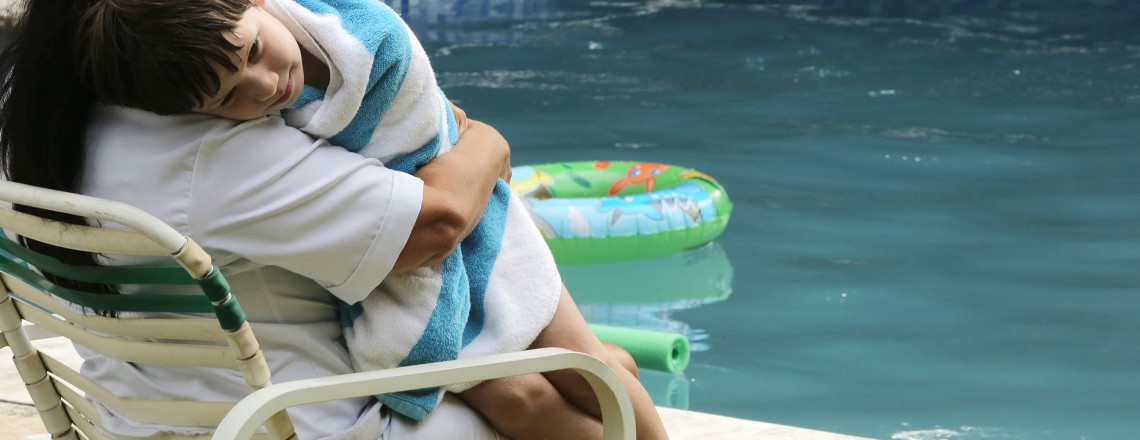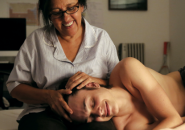
Regina Case shines in Anna Muylaert’s warm character study of a live-in maid and her estranged daughter in Sao Paulo.
Geoff Berkshire – Associate Editor, Features – @geoffberkshire
Brazilian filmmaker Anna Muylaert spins a culturally specific tale with the universal appeal required for international arthouse success in “The Second Mother.” Showcasing an indelible star turn from popular local thesp and smallscreen host Regina Case (who shared a special jury prize for acting at Sundance with co-star Camila Mardila), this is the sort of savvy, socially conscious crowdpleaser that occupies a rare middle ground between genteel and intellectual world cinema. Pic looks like a smart acquisition for Oscilloscope in the U.S., provided the release strategy nurtures obvious word-of-mouth potential.
In a further boost, “The Second Mother” nabbed the audience award in the Berlin Film Festival’s Panorama section shortly after its Sundance bow. Credit a good deal of that aud appeal to Case, as the veteran holds the film together with a lived-in and immensely endearing performance, just as her character, Val, quietly manages an entire household without any fuss.
Val is a domestic who lives with her employers, Barbara (Karine Teles) and Carlos (Lourenco Mutarelli), in Sao Paulo, tending the house, cooking and serving meals, and caring for teenage Fabinho (Michel Joelsas) since he was just a boy. Although Barbara is Fabinho’s biological mother, it’s Val who serves as the true maternal figure in his life.
That disconnect between nature and nurture is brought into further relief with the arrival of Val’s biological daughter, Jessica (Mardila), a wickedly smart and unassumingly progressive teen Fabinho’s age who hasn’t seen her estranged mother in close to a decade. Unlike Val, Jessica has no regard for the “rules” of the house, and her presence exposes the myriad ways Val is marginalized without even recognizing it.
Upon learning of her daughter’s visit, Val dutifully prepares an extra mattress in the servant’s quarters, but Jessica accepts Carlos’s offer of the guest room without a second thought. (“They offer you these things so you’ll decline,” says Val.) Jessica dines with the family, indulges in Fabinho’s favorite ice cream and even takes a dip in the pool — all to Val’s horror, and increasing disapproval from the supposedly liberal-minded Barbara.
Case’s ace comic timing, refined over years on television, mines plenty of humor from Val’s incredulity at Jessica’s behavior. But she’s careful not to allow Val to devolve into a cartoon, imbuing the character with the endearing and annoying qualities of many a mother. The specific way she enunciates her daughter’s name, nagging with love, will linger in viewers’ heads for days. (It’s only during a few scenes with Helena Albergaria as Val’s trusted confidant that Case’s otherwise nuanced work veers toward shtick.)
The same delicate balance shines through in Muylaert’s screenplay. Tightly written and structured, with characters (Val and Barbara, Jessica and Fabinho) and situations (a college entrance exam, meal preparations) mirrored, twinned or paralleled to tease out the film’s themes, the script is executed with enough naturalism to ward off complaints of contrivance — all the way up to a tidy, but quite satisfying, denouement.
Relative newcomer Mardila more than holds her own against a veteran co-star as a young woman who came of age far removed, literally and figuratively, from her mother’s servitude mentality. Teles, Mutarelli and Joelsas (who made his debut as the young lead of “The Year My Parents Went on Vacation,” co-written by Muylaert) aren’t afforded as many colors to play, though they all manage to steer clear of haughty upper-class stereotypes.
Adopting a warmer approach to the subject of live-in help than Chilean helmer Sebastian Silva’s 2009 pic “The Maid” (which also bowed in Sundance’s World Cinema dramatic competition), Muylaert is every bit as interested in self-discovery on the part of her working-class heroines. And the elegant visual style, particularly Barbara Alvarez’s precise lensing and Marcos Pedroso and Thales Junqueira’s detailed production design, serves them well.
Fonte: Variety






